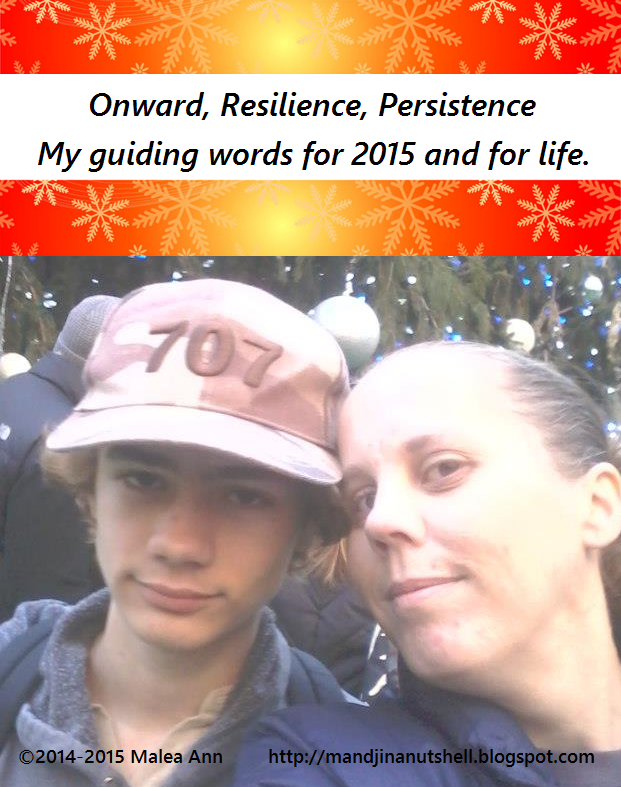Over the last two days, I've written about our start in homeschooling, thoughts on curriculum, when we do formal work, and much more. Today, I'll be talking about what homeschooling looks like for us now, seven years after we started, and also about why I let my son spend (almost) as much time as he wants on video games - and not necessarily educational ones.
Homeschool lesson #6 - Your approach will evolve over time
When we first started homeschooling, we followed a schedule (or lesson plan) that I made every week. Some pieces of curriculum that we used came with lesson plans which we either followed or tweaked to suite our needs. For other things, I made up my own lesson plans. Usually, I would spend an hour every Sunday evening reviewing what we did the previous week, goals for the upcoming week, and any special events that might be coming up in the new week. I plotted everything out on paper, gathered materials (books, science equipment, etc), and put it all in on the kitchen counter. On Monday, my son and I would review the week's schedule and get started. I had everything broken down by subject and day. We mostly got everything covered every week, but almost never followed the day-to-day schedule! Often we would do three days of science in one afternoon, an entire week's worth of reading on another afternoon, and so on.
Now, I still make a schedule of topics or items to cover, but it isn't based on any specific curriculum or lesson plan, and often follows my son's interests or plans for getting into college (that will be a future post - and again, the way one homeschooling family approaches college will be different from the way another family approaches it). At this point, we also do very little formal schoolwork together. Now, I just hand my son a list periodically, and tell him to finish it either that day, by the end of the week, on a certain date, or whatever fits our needs at that particular time. I'm also perfectly happy to scrap the list if I see him doing something that appears to have more value than anything on the list.
 |
| Working on math. |
Homeschool lesson #7 - Your approach needs to work for everyone involved
As our approach evolved, and we learned more about what worked for us and what didn't, we started to figure out what worked for me but not JP, what worked for JP but not me, what worked for both of us but not for my mom who we happened to be living with (for the past four years we have been on our own - just the two of us).
For JP and I, it was enough to have the week's worth of materials in a pile, the plan for the week arranged by category but not by day, and to just work on things as the mood struck. However, I did realize that math was something that needed to be done daily for both my son and I. For my mom, it was important to measure progress - a list that we could tick off as we did each lesson, curriculum being used and learned from, and application of learned information.
From the start, learning to compromise has been imperative. Just because you are the adult, doesn't mean you know best when it comes to finding materials that work for your child - you need to figure it out together by trial and error. If your child is miserable with the materials or approach you have chosen, you will be miserable too, and vice versa.
Homeschool lesson #8 - You may end up homeschooling in ways you never expected
We started out with a lot of structure and expectations about how homeschooling would look. At the start, I assumed we would always follow a lot of structure, lesson plans, and so on because that's what I thought I saw the homeschooling families around us doing. Recently, however, it occurred to me that that wasn't what I was seeing at all! It might be true that some of those homeschooling families have gone year to year with little change in their routine or approach, but I was only seeing a moment in time in their experiences and comparing that with a moment in time of our experience (
Homeschool lesson #8a - Your homeschooling experience may be totally different from that of other families you know).
Now, we are very loosey-goosey but aren't full-on unschoolers. We still follow a loose structure for math and history, and we do lots of reading. But, we don't follow any set curriculum - none at all. I cobble together materials and plans on my own. We may work really intensely on a subject or specific topic for several weeks, then nothing specific for several more weeks. We bounce back and forth based on the rhythms of our lives. When either of us wants to know something, we seek out information and sources (
Homeschool lesson #8b - You will most likely learn a ton along with your children!).
 |
| A failed eggsperiment. |
Homeschool lesson #9 - Video games aren't mutually exclusive with homeschooling or learning
I used to limit my son's video game playing to so many minutes or hours per day or week, or to times after schoolwork is done, or after chores. I don't do that anymore. I realized that even with non-educational games, my son was still learning. He was learning problem solving skills. He was learning to seek out information from reliable sources. He was learning cooperation. He was learning leadership.
When he came to difficult parts in a game, instead of trying to figure it out for him, I encouraged him to seek answers himself. We started out searching the internet together for useful tips, cheat codes (which aren't really cheating if you really understand the way video games work - "cheat" is a misnomer when it comes to these codes), but eventually, I began letting him seek out the information on his own. He became savvier and savvier at searching the 'net, and he learned a lot about reliable vs unreliable websites and sources which has helped him in other areas of life as well.
As my son's video gaming abilities increased, and his gaming interests matured, I began letting him play multi-player, online games - in essence, playing online with strangers. We spent a lot of time talking about online safety, and that has transitioned to safety in general. Over time, he got interested in games such as Blockland where there really aren't a lot of rules, and people make up games as they work and play together. My son has learned more about cooperation, leadership, and following than he ever would have on a public school playground. Because he seeks out information to help him play these games, he is often looked to as a leader in his gameplay, but the very nature of these games requires the ability to work together with others to achieve a common goal. He also has learned to let go of leadership when it comes to tasks in which another player might be more skilled. Again, this has translated to every day, real life situations.
Through his online game play, particularly through Blockland, my son has also learned a TON about physics, computer coding, and game modification. He is so far beyond me in these areas that I can't even tell you about them! All I know is that if I have a computer problem, he can usually fix it now! He also is able to talk about computers, gaming, and all sorts of related topics with adults who have spent dedicated time learning this stuff.
My son's video and computer gaming interests have also led to interest in art - both drawing on paper and with computer-based art. He's getting so good that we have been talking about putting together a portfolio, and possibly pursuing college level art classes.
 |
| New video games for his birthday last year. |
Homeschooling lesson #10 - Even without formal lessons, your child will learn
Have faith that your child will learn simply from existing in this world. Your child will learn if they see you learning. Your child will learn if you actively engage in honest, deep conversation. Your child learn if you set an expectation of seeking answers to questions.
I know my son is learning because I see him applying knowledge that he
has sought out to situations he encounters in day to day life. I know he
is learning when I overhear him discussing complex ideas with his grandfather. I know he is learning when he suddenly mentions something he read weeks or months ago to a situation he is experiencing in the moment. I know he is learning when he questions the assumptions of others, especially when those assumptions appear to have no basis in fact.
Tomorrow, I will talk about homeschooling as a single parent and why I don't worry about the s-word (socialization). Farewell, until then!
~*~*~*~*~*~*~*~*~*~*~*~*~*~*~*~*~*
If you enjoyed this post, here are a few others you might also like:























